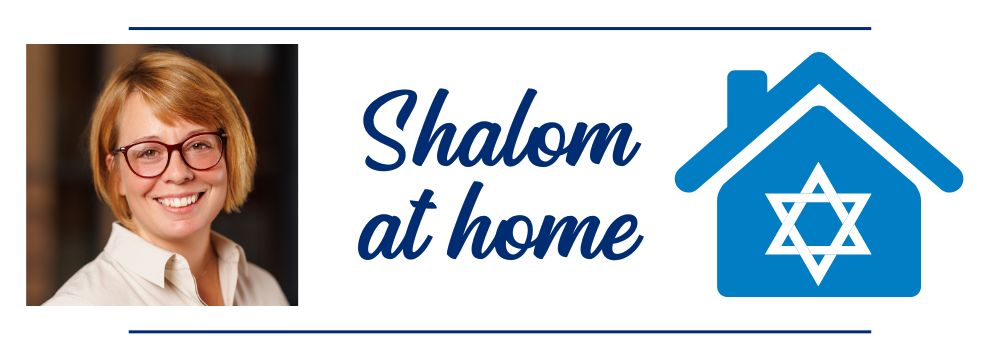A few months ago, I had a conference call with two very impressive people. Kind, professional and eminently learned, Adam Pollack and Rabbi Miriam Wajnberg represented 18Doors, an organization with a vital and thoroughly modern mission: to empower people in interfaith relationships to engage in Jewish life, make Jewish choices and encourage Jewish communities to welcome them.
“Important stuff, and I am all in,” I thought. I was so ready to show that PJ Library, Jewish Federation and I were not just eager partners but smart and open-minded and super-duper on top of the issues.
In less than five minutes, I realized that maybe I didn’t even understand what an interfaith relationship was.
A little backstory:
My husband, McKay, is a deeply spiritual and incredibly disciplined person. His personal and religious practice has evolved in the 15 years we’ve been together, though, and when asked about his religion, McKay has labeled himself a “lapsed Catholic,” “a fly fisherman” or “Stoic heathen with Buddhist leanings.” Most recently, he’s said to hold to “something closer to the Shinto conception of divinity than purely Greco-Roman polytheism.”
As we age, our beliefs evolve, but one thing is certain: McKay is not and will never be Jewish.
Still, we don’t keep an interfaith household; there’s no Christmas tree, no church attendance and very little ham. We light the candles, bless the wine, hang mezuzot on the doors and regularly attend shul. When we remember to do Havdalah, it’s because McKay reminds us. So am I in an interfaith relationship? Yes. No? I’m not sure…
According to the 2021 KC Jewish Community Study, those of us under the age of 40 are marrying outside the faith at a rate of 47%. As many of us prepare for or navigate through the sheer terror of child-rearing, that means that nearly half us are asking things like — How do we marry our traditions? Should we let the kids choose for themselves? What do we say about Santa Claus?
And just because our partners are lapsed Catholics/fly fishermen/Stoic heathens, their parents certainly aren’t, so — Will they be hurt if we don’t do the egg hunt? Will my mother cry if we have a tree? Will the rabbi let my Christian sister-in-law stand on the bimah?
The questions of interfaith parenting reach farther than the walls of our homes, and for no one is this clearer than for Jews by choice. Are these solidly Jewish partnerships made interfaith by virtue of the intergenerational expectations that must be navigated?
Whether interfaith or converted, if we’re lucky, the raising of our children involves extended family — even if just a bit. And people who love us bring with them hopes and expectations. What on earth are we supposed to do with those?
Back to the conversation with 18Doors. Just a few minutes in, and my poise had crumbled in a flurry of confusion. Luckily, Rabbi Miriam smiled through the Zoom screen and said, “Yeah. These things are tough. And I bet your husband thinks so too.”
Jewish Federation will present a night with 18Doors, “Sharing Our Stories: A Conversation with Interfaith Families” on Monday, Feb. 3, at 7 p.m. at Meadowbrook Park Clubhouse. You can register at jewishkansascity.org/events/18doors.
The panel and small group discussions facilitated by Rabbi Miriam will create a welcoming space for parents and those considering having children themselves. We’ll talk through the challenges and opportunities of interfaith families.
Book those babysitters, because these are conversations that should happen with both parents. All are welcome: moms, dads, fly fishermen and even heathens. Just make sure you come with an open heart.
Like what you just read? Consider supporting The Kansas City Jewish Chronicle, our community's only Jewish news source for over 105 years, by making a donation or starting a subscription today!
